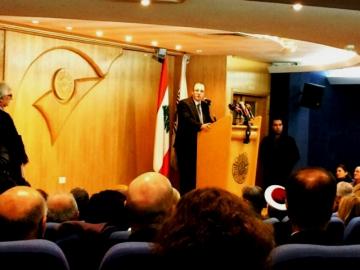
On 10 January 2015, ESCWA launched its study on Poverty in Tripoli from the Chamber of Commerce and Industry in the city. The study was prepared in cooperation with the United Nations Development Program (UNDP) and under the supervision of the Lebanese Ministry of Social Affairs. The Commission gathered on 12 January in its Beirut headquarters a host of experts and diplomats to discuss the conclusions of the study.
The study was drafted using the Urban Poverty Index (UPI), which is a joint initiative by ESCWA and the Arab Urban Development Institute to measure poverty in any urban setting allowing policy makers to make comparisons between cities and within neighborhoods of the same city. The Tripoli experience can serve as an example to discover to what extent UPI can be further used regionally.
According to the study, Tripoli is in general a poor city, with some “pockets of luxury”. Of the city’s residents, 57 per cent are deprived, and of these, 26 percent are extremely deprived, while 77 per cent are deprived in terms of the economic status factor, whereas 35 percent are deprived in terms of accommodation, 35 per cent in terms of health and 25 per cent in terms of education.
The study includes a number of interlinked solutions to address the issue of poverty in Tripoli. The recommendations are sectoral, economic, and also pertaining to accommodation, health and education. Among these, the study called for the necessity of reducing the disparity on the scale of the city itself, the necessity of implementing mega projects to benefit economic development, and the necessity of having a strong central-local leadership.
The study can be found on the links below (Arabic):
Book 1
Executive Summary and Recommendations
For the media coverage of the event, please click on the links below:





